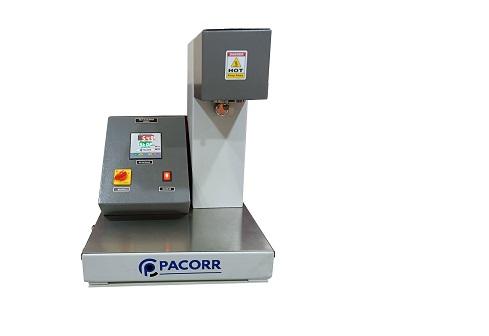In the fast-paced world of polymer manufacturing, quality control is paramount. A key player in maintaining this quality is the Melt Flow Index (MFI) Tester. This indispensable instrument measures the flow characteristics of thermoplastic polymers, ensuring they meet industry standards. In this blog, we'll delve into the significance of the Melt Flow Index Tester Price, its operating principles, and its diverse applications within the polymer industry.
The Role of the Melt Flow Index Tester
A Melt Flow Index Tester is a crucial tool used to determine the flow rate of a polymer in its molten state. The MFI value, expressed in grams per 10 minutes, reflects how easily the polymer can be processed. This measurement is vital for quality control, helping manufacturers maintain consistency and ensuring the polymer meets the required specifications for various applications.
Key Benefits of Melt Flow Index Testing
Consistency in Quality: The Melt Flow Index Tester value helps detect variations in polymer batches, ensuring uniformity and reliability in the final product.
Optimization of Processing Conditions: Knowing the MFI aids in adjusting processing parameters like temperature and pressure, enhancing production efficiency.
Product Development: Accurate MFI measurements assist in developing new polymer grades tailored for specific applications.
Regulatory Compliance: Many industries have stringent standards that include MFI as a critical parameter, making precise testing essential for compliance.
How Does a Melt Flow Index Tester Work?
The Melt Flow Index Tester operates by heating a polymer sample to a specified temperature within a cylindrical chamber. The molten polymer is then forced through a die under a controlled load. The amount of polymer extruded in a set period (typically 10 minutes) is weighed, and the MFI is calculated.
Step-by-Step Process:
Sample Preparation: A small polymer sample is prepared and placed into the heating chamber.
Heating: The sample is heated to a specified temperature until it melts.
Extrusion: A predetermined weight applies pressure, causing the molten polymer to flow through the die.
Measurement: The extruded polymer is collected, weighed, and the MFI is calculated.
Applications of Melt Flow Index Testing
Plastic Manufacturing: Used extensively in producing components for automotive, aerospace, packaging, and consumer goods industries.
Quality Assurance: Routine checks on incoming raw materials and finished products to maintain consistency.
Research and Development: Essential in developing new polymer formulations with specific flow characteristics.
Regulatory Compliance: Ensures materials meet national and international standards.
Advantages of Using a Melt Flow Index Tester
Precision: Provides accurate measurements, essential for quality control.
Efficiency: The testing process is quick and straightforward.
Versatility: Suitable for a wide range of thermoplastic polymers.
Cost-Effectiveness: Helps reduce production waste and rework, leading to cost savings.
Why Choose Pacorr's Melt Flow Index Tester?
At Pacorr Testing Instruments, we offer state-of-the-art Melt Flow Index Testing designed to deliver precise and reliable results. Our instruments are built to meet the rigorous demands of the polymer industry, ensuring your materials consistently meet the highest standards.
Key Features of Pacorr's Melt Flow Index Tester:
High Precision: Accurate measurements ensure consistent quality.
User-Friendly Interface: Easy to operate, reducing testing time.
Durability: Built to withstand the demands of industrial use.
Versatility: Suitable for various thermoplastic polymers.
Conclusion
The Melt Flow Index Tester is a vital tool in the polymer industry, providing essential data for quality control, product development, and regulatory compliance. By understanding and utilizing the MFI, manufacturers can ensure their products meet the necessary standards for performance and reliability. At Pacorr Testing Instruments, our Melt Flow Index Testers are designed to help you achieve these goals, ensuring the highest quality in your polymer products.
For more information on our range of Melt Flow Index Testers, visit Pacorr Testing Instruments.
FAQ Section
Q1: What is the Melt Flow Index (MFI)?
A1: The Melt Flow Index (MFI) measures the flow rate of a thermoplastic polymer in its molten state, expressed in grams per 10 minutes.
Q2: Why is MFI testing important?
A2: It ensures quality control, optimizes processing conditions, aids in product development, and ensures compliance with industry standards.
Q3: How is the MFI value calculated?
A3: By heating a polymer sample to a specified temperature, applying a load, and measuring the extruded polymer over a set period.
Q4: What types of polymers can be tested using an MFI tester?
A4: A wide range of thermoplastic polymers, including polyethylene, polypropylene, polystyrene, and polyvinyl chloride.
Q5: How does MFI testing help in regulatory compliance?
A5: Ensures materials meet national and international standards, with Melt Flow Index Tester Price often being a key parameter.
Q6: Can MFI testing be used for quality assurance?
A6: Yes, it’s widely used for routine checks on raw materials and finished products.
Q7: What are the advantages of using a Melt Flow Index Tester?
A7: Accuracy, efficiency, versatility, and cost-effectiveness, providing precise measurements and reducing production waste.

